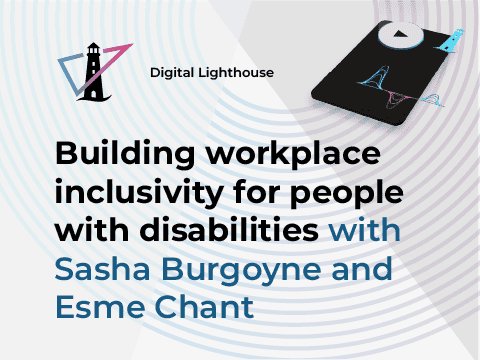What do women in tech want? Equality, sure; career prospects; and flexibility and a great work-life balance – honestly, the stuff everybody wants regardless of gender. But there’s something else too that surprised me when I found it out, and this International Women’s Day I want to share that with you.
Unfortunately, because this is the internet, I have to leave you hanging to find out what it is. Annoying, eh?
A bit of background. Softwire’s gender balance has changed a lot since I joined as a graduate developer in 2017. We used to recruit almost exclusively graduates from computer science and maths degrees, so we inherited their gender ratio, which oscillated between 20% and, er, 0%.
Nowadays we have a much healthier intake of entry level developers who did – shock! – other degree subjects, or made a career switch via a code school, or direct apprentices with no degree at all. Unsurprisingly, this diversification of our recruitment pipeline has brought the proportion of women entry level devs from 22% in 2017 up to 51% in 2022.
Honestly, I don’t think we can give ourselves too much credit for this: yes, it’s partly the outcome of years of serious effort from Softwire’s recruitment team and senior management, but it’s also reflective of the industry as a whole. You might remember Fatima’s career switch into “cyber”. You can’t hop on the Tube for adverts encouraging you to earn 80% more by going to a code academy. (Sign me up!)
The problem is, when you have more women, you start noticing other problems like:
- Our gender pay gap just rose, because our junior employees are disproportionately women and it hasn’t trickled up to senior management yet
- The pipeline to senior technical roles is leakier than St David’s Day; women disproportionately switch from being Tech Leads to being Delivery Leads – one of my colleagues described aiming for the Tech Lead track as being like “fighting against the current”
…and various similar cross-cutting concerns that we all talk about over lunch but can’t seem to find the time to confront head on when we’re actually at work.
So a group of us started a womxn’s network. (The “x” is to symbolise we’re trans inclusive – the only criterion we ask is that joiners aren’t cis men.) Hypatia was a Greek (actually, Alexandrian) inventor and mathematician who was memorably played by Phoebe from Friends if you made it to season 4 of The Good Place. As a result we all felt a real affinity to her and named the group the Hypatia Network.
Okay, so we have a Slack channel. Now what?
We do lunches and after-work events, which are mostly just a nice excuse to meet people in other corners of the company. The bit I really find interesting, though, is what happens during work time – what we talk about on Slack in between everything else.
Here’s what I was expecting…
Feminist activism
We have several well-established focus groups at Softwire already. There’s a Diversity and Inclusion working group, Mental Health First Aid scheme, and Sustainability Team, for instance. These are all groups with a mandate – with a focus – who can get budget and resource to make things happen.
Hypatia Network doesn’t have a mandate or a mission. It’s just all the womxn in Softwire in a room together. There’s a flavour of social experimentation. When you put a load of women in a room together, what do they talk about? It turns out it isn’t plans to tear down the patriarchy (sadly). It’s much less sweeping than that.
Knitting memes

Sometimes stereotypes are there for a reason.
Targeted spam
Okay, some of this is down to me. But if we’re running an event at a university society dedicated to women in tech, nobody wants Softwire to send an all-man cohort. Come on! It’s 2024. It’s embarrassing.
But, to my surprise, the spam really doesn’t account for much of what Hypatia Network talks about. There’s something much more important that dominates the discussion.
What women in tech really want is… solidarity.
I’ll protect my colleagues’ confidentiality by paraphrasing rather than sharing posts verbatim. Here are some entirely made-up posts that might give you a flavour of what gets discussed:
- “I just had an interaction with a male colleague that left a sour taste in my mouth. I feel mansplained to. Can someone give me a sense check? Did I do something wrong?”
- “Has anyone else noticed how decisions on [x topic that affects the whole company] seem to be being made only by men?”
- “I’ve just been trying to do something way outside of my comfort zone and I feel like a huge impostor… Help!!”
What’s the common theme here?
It’s nothing more or less than women’s experiences in an industry – and a world – that needs, well, occasionally reminding that women exist. Sometimes you just need to stand on a clifftop and scream into the wind for a bit. For me, Hypatia is an alternative to that which doesn’t need me to leave the M25.
These experiences strike a chord, too. A flood of support accompanies posts, whether replies or well-chosen emojis. That solidarity and validation builds community in the long run but it is also materially useful right now. Sometimes people post “clifftop screams” without a clear idea of what they expect out of it. Then the ensuing conversation helps externalise the problem; stops you from it just going around in your head and lets you start to build something constructive.
You get wisdom and trusted judgement. The channel has more than a hundred members – that’s a huge wealth of experience to draw on. Members are engaged across the company: different verticals (overwhelmingly tech, but also design, delivery, HR, legal, office management) and up and down the seniority scale. Let’s talk about the last post – the one about feeling like an impostor. That actually came from one of our senior leadership team.
Now, I’m extremely ambivalent about vulnerability. There’s a lot of online content that monetises or weaponises it. I don’t think baring your soul to a big group of people should ever be the price of entry. However, having senior women express vulnerability in a visible space is very powerful: it brings us closer together; it erases boundaries. And while we do have a committee who handle admin and are the public faces of the group, they aren’t affiliated with HR or the senior leadership team. The group is bottom up, not top down.
To get that kind of openness, you need psychological safety. Group members need to know that raising a concern won’t result in a black mark on their official record. That trust is something extremely hard earned, and relies on a strong company culture which everybody is bought into.
There can be quick wins to creating a safe space, too. We use a Slack bot called anonymous-bot to offer people the option to participate without needing to use their name. The group is private: members join a public channel and then a member of the committee manually adds them to a private channel. This keeps the group discoverable, but gives members a bit more visibility over who is seeing their posts and sets an expectation of confidentiality.
That’s all the concrete stuff Hypatia Network gives us. But there is something more undefinable about being in a women-only space. We’ve all had that meeting where we were the only woman in a room full of men. Maybe we’ve worked in spaces where that’s the case all the time, day in, day out. It’s scary, and intimidating, and makes you question your own value. But most of all it’s exhausting. After the fear and the self-doubt have settled into a grey haze that’s just there in the background every working day, you’re left with a sense that you’re pouring all your energy into being there. Then you have no energy left to excel.
Conversely, there is something really refreshing about being in an all-women environment. I get this in a lot of women-in-tech spaces, whether they’re tiny (a meetup run by the excellent Em Bayley-Melendez and our very own Sasha Burgoyne) or huge (last year I was lucky enough to get to attend the Women of Silicon Roundabout conference, along with 4999 other women).
Only some of that is novelty. At the risk of sounding mystical, there is something in the air in these rooms: all those (mostly) soprano voices give it a lightness, make it feel like anything might happen. I read a lot of science fiction and my favourite bit is when you meet a new idea that’s so weird and yet so perfect and beautiful that you can’t help see the world a different way afterwards. Walking into a room full of DevOps experts – but they’re all women – is like that. (Even the F-tier puns about CI/CD.) It leaves me energised, full of ideas and a simple, happy optimism about the future. So what is it women in tech want? Don’t worry, we aren’t out to destroy all men yet – we just want solidarity, energy, and occasionally a clifftop to scream off.
If you’re still reading after all that, you can find my tips on how to build real solidarity among women in tech companies just below, in handy SEO optimised list format.
Happy International Women’s Day!
What can tech companies do to foster solidarity among women?
- 1. Build a safe space. Tell employees they can express their opinions and offer feedback without fear of repercussions – and mean it. Offer an “anonymous” option when soliciting feedback.
- 2. Foster community by offering “donut chat” schemes between women: pair them up and get them to organise half-hour one-to-ones on company time.
- 3. Offer targeted training and development. We run a mentoring and coaching course specifically tailored to women and non-binary people at all levels. The curriculum covers impostor syndrome, defining your value statement, networking and goal-setting.
- 4. Leave us to it. Honestly, whatever your gender, if you’re reading this from a position of power in your company, you have a great opportunity to support the women you work with; but you also can’t force a grass-roots campaign from the top down. Foster initiative, offer support, then back away and give them space to grow. Listen to them when they say things, even if it isn’t what you want to hear.


